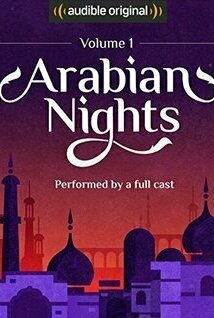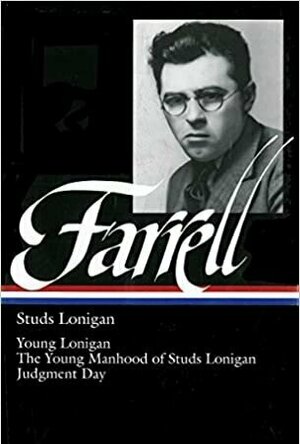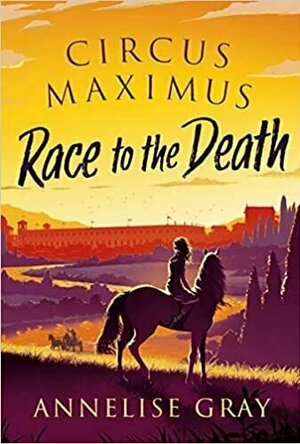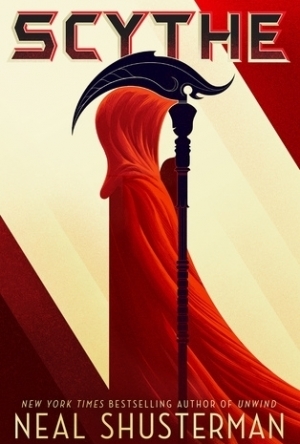BookInspector (124 KP) rated Circus Maximus: Race to the Death in Books
Jul 1, 2021
The narrative of this book was very fast-paced and very intriguing. There were plenty of turns and unexpected surprises, that I thoroughly enjoyed. This book talks about four factions/teams: Green (everyone’s favourite), Blue (biggest Green’s competitor), White and Red (these teams were the least mentioned in this book). I have to say, that I am a supporter of the Blue faction. 🙂 There are plenty of reasons but if I will tell, it will spoil the reading experience. The topics discussed in this book are chariot racing, cheating in sports, gender power playing, mental health issues, very slight romance, animal cruelty and many more.
I was a little scared to read this book because when I saw the character listing at the beginning of the book, I thought that there will be a very wide variety of characters and I will have difficulty knowing who is who. But I was very wrong indeed. This book is beautifully written and very easy to read. The chapters have medium length, but they just flew by for me, I was very absorbed with this story. I have to throw in a warning, that this book contains animal cruelty, so if anyone is like me, tears and anger will be happening while reading. The ending of this novel rounded this story very nicely, and I can not wait for the next book in this series.
So, to conclude, the protagonist of this story is very likeable, and I was cheering her all the way till the end. All the characters in this book are very well crafted and delivered, and the plot of this book is fast-paced and absorbing.
LoganCrews (2861 KP) rated The Hunger Games (2012) in Movies
Sep 20, 2020 (Updated Nov 26, 2020)

Tom Loves Angela for iPad
Entertainment
App
All Talking Tom wants to do is get a glimpse of the beautiful Talking Angela! Help Tom out by giving...

Tom Loves Angela
Entertainment
App
All Talking Tom wants to do is get a glimpse of the beautiful Talking Angela! Help Tom out by giving...

Arabian Nights Volume One
Book
Please note this drama contains some explicit content. This multicast dramatisation of Arabian...

Studs Lonigan
Book
This Library of America volume contains one of the masterpieces of American naturalism and a major...

Twister
Book
Now that I’ve graduated college, I’m expected to join the family accounting business even though...
Contemporary MM Romance
A Bibliophagist (113 KP) rated Scythe (Arc of a Scythe #1) in Books
Jan 27, 2020
So in a New year new me moment, I forced myself to pick up two popular books that I was not interested in. Since they were both YA, they'd be quick reads and my expectations could below. I also forced my picks to not be hard SciFi, as I need to step out of my comfort zone. I picked this up, and developed more concern when I noticed how divided the reviews were, I noticed people were either firmly in the "this is my most favorite book ever" or in the "this is the most boring book ever I hated it" camps. I rarely rate books 1 or 5, so I wanted to see how I felt.
Honestly, I was very pleasantly surprised. This book is YA, and obviously has some YA aspects, but it doesn't follow the tropes unless stripped down to bullet points and is surprisingly well written. This well written aspect, with no intentions of making people mad, I think is why so many found it boring. If you primarily read YA, and are used to it's over the top writing, it's over the top dialogue and relationships and emotions, then yes, this book was probably horribly boring.
We do open with the standard tropes of uninteresting, normal girl and boy get thrown into something extraordinary. But that's where the stereotypes ended for me. The author quickly throws us into the world and the events of the story. We're in the future, who knows how far past the present, where society has overcome death. AI has evolved and "The Cloud" is now "The Thunderhead" a massive AI database that has solved most of the world's problems, eliminated poverty, war, government, created jobs for everyone, and even defeated death. We all have healing nanites that prevent illness and repair injury, and even in the case of death, we can be revived at a revival center and be greeted with some tasty ice cream. If we start feeling our age, we can just "turn a corner" resetting ourselves to a younger version of ourselves while retaining our memories.
Now, in a world without death, but babies are still being born, some form of population control is in order, the balance must be restored. So the world created the Scythedom. An organization outside the authority of "The Thunderhead" because death has and always should be a responsibility of the living. Those who become Scythes, must "Glean" (permanently kill) a quota of people every year to maintain population control. How they do so is up to them, but there are rules, a Scythe cannot show bias or malice in their choices, they cannot marry or have a family, they cannot kill another Scythe (but they can glean themselves) or someone with immunity, They may grant immunity to those they feel worthy, they must kill the families of those who resist, and they are above all other laws. The vagueness of these laws worked when the Scythedom was first created, but the world has become complicated, and some people have decided to find joy in what they do, even if it's killing.
Our story follows two teenagers who recently encountered the Honorable Scythe Faraday, Citra, and Rowan. Citra showed gumption and sass and moral balance, and Rowan held the hand of a boy that was not his friend as he was gleaned. Faraday is considered old school and chooses all that is gleaned by old school, age of mortality statistics. If a percentage of teenagers died in alcohol-related car accidents, he found a teenager with a penchant for drinking, who just got a car, and gleaned them. He believes the job is necessary, but should never be enjoyed, you need to be moral and compassionate and hurt every time. He is granted permission to take on an apprentice, and he takes on two, Rowan and Citra. Neither want it, nor should they, but should they become a Scythe, their families will receive immunity as long as they shall live, which in this day in age could be forever. So, reluctantly they both take it. There is a glamour to Scythedom as well, they'll wat for nothing, people will bend over backward to provide them with their desires in the hopes of immunity. If these two follow the teachings of Faraday, they won't be tempted by this, they won't abuse it, but not everyone feels the same way.
Citra and Rowan begin training (it gets a bit YAish here) studying history, poisons, combat, weapons. The goal to make them perfect, moral, compassionate, killing machines. Everything is going as well as it can, and luckily the book doesn't do what every other YA author would do and give us pages upon pages of the two falling in love, awkward encounters, stolen kisses. We have none of that thankfully. The dialogue is all purposeful and helps propel the plot, not flowery passages talking about teenage angst and feelings. But, it is a book, after all, so everything starts falling apart when a group of "New Age" Scythes, Scythes that believe they should enjoy their jobs, who take pleasure in mass killings (entire flights, festivals, food courts) stir things up at a Scythe Conclave meeting. They question if having two apprentices hurts whether or not the Conclave can judge the worthiness of either, or if them being friends will result in them always helping each other. How can they truly judge their ability if they always have each other's support? So they propose, since no law prevents it, that whichever apprentice should be chosen (remember Faraday was given permission to have ONE apprentice) will have to Glean the other. The Lead Scythe allows it, and honestly, this is one aspect of the book I struggled with, but I think was supposed to express the corruption of the Scythedom, at times when things aren't in writing they say "welp can't do it" and other times they say "welp nothing says we can't do it". Faraday attempts to free our two protagonists from their apprenticeships, but instead, they are separated, one going to a respected Old School Scythe, one going to the very modern group that started this whole problem, thrusting them into a world excess, deprivation, and honestly psychotic murdering. They now train, separately, knowing that one will die unless they can figure out a way to change things.
Even writing that sounds so Yaish, but it doesn't feel that way because it's so well written. The author doesn't give us Romeo and Juliet, no pining, no romance, just two kids trying to be that, good. Even when surrounded by something very bad. So, if you want to star crossed lovers, you won't like this book. If you like character development and struggle, you might like this book. We arguably see more of Rowan's development, Citra for me felt less focused on or given fewer opportunities for growth, and she had a bit of an attitude that made me no like her much, but given her circumstances, I UNDERSTOOD why she was the way she is, and I can't say I wouldn't be just as grumpy. If anything her response to the corruption and the situation felt very real, even if it sacrificed having a manic pixie daydream mary sue to project myself into. While appearances weren't really given for the two, setting them up to be good old fashioned Mary Sue and Gary Stu, they were very much their own people, with little room for the reader to pretend to be them. So another star in the breaking the YA mold category. We watch them struggle with where they are, and how to come to terms with their inevitable future, either being takers of life or having their life taken.
Overall this was refreshing, while it was an easy read and was a good "palette cleanser" and m boyfriend calls my YA marathons in between books that actually linger in my soul. It felt elevated, sure it was still very much YA, but it was more thought out than the standard, it focused on the story and not the romance, it focused on important things, and it never lost sight of its story. I started at 11am on a Sunday and Finished by noon on Monday, eager for the next. It was an unexpected, refreshing read, with a unique concept that has room for more. The sequel doesn't feel forced, and if I never got it, this story is finished, but the world and situation created to allow for more, without feeling like a forced trilogy. I wanted to know how this story was going to play out, and now that it has, I want to know how the next story in this set up plays out.
graveyardgremlin (7194 KP) rated Ashton's Bride in Books
Feb 15, 2019
Be warned! Massive ranting ahead!
<spoiler>
1. Like I said before, I hated her time-travel method. I don't quite get even how she time-traveled and the part I hate the absolute most is that she's in someone else's body. I just recently read a short story that had the same time-travel method, except that it was explained. I just find it disturbing and creepy, not to mention the amount of times it is said in the book how beautiful and perfect her looks are. Pretty nauseating. I just don't know how you could get used to looking in the mirror and not seeing yourself. That'd just be weird to me, even if I did happen to enter into a drop-dead gorgeous body. And Margaret acted like she was some freak of nature when she was in 1993. Boo hoo. Be happy with yourself for goodness sake! It seemed somewhat like the author was saying that you're not good enough if you're not beautiful. At least, that's the impression it gave to me.
2. It seemed to me that Ashton was infatuated with Mag. He couldn't have possibly actually loved her the way she was before Margaret entered her body, but he said he had. He really had to have fallen in love with Margaret, not Mag, and the blurriness there bothered me.
3. They're cousins. Okay so Margaret actually isn't, but the body she's in is. So what about children? Not a major point since cousins marrying isn't all that odd back then, but because of my other problems, it creeped me out more here.
4. Margaret's whole "revelation." She says now her parents and siblings never went to Cape Cod and are alive after all since they only went because of her and now she's back in time, and her parents only had two kids and not three. Umm no. If her parents never had her, then it would be impossible (yes, so is time-travel, but that's beside the point) for her to have gone back in time at all! She would have disappeared; she couldn't just be there now! Am I the only one who can see that?! Remember the photo featuring disappearing McFly's in Back to the Future? What comes around goes around. There's a few instances of that, but this is the one that bothers me most.
5. How did the papers show up? Seemed really unnecessary just to have Ashton believe her.
Had the back cover described how exactly Margaret time-traveled (like a mention of waking up in a strange body, perhaps?), maybe I wouldn't have had such a hard time with the concept and the other stuff wouldn't have bothered me as much. Who's to know?</spoiler> I promise, I'm really not crazy, even if my rants point to the contrary. I really think it could have been a great story, and I'm sure others will enjoy it, I just was left very disappointed.
Heather Cranmer (2721 KP) rated The Night Olivia Fell in Books
Mar 15, 2019
I found the plot of The Night Olivia Fell to be very intriguing and well written. There were so many feelings with this novel. I enjoyed reading things from Abi's perspective and then going back in time to read flashbacks in Olivia's perspective. I found myself trying to decide if Olivia really was murdered or if she killed herself. There were so many times I thought I had figured out who pushed Olivia just to be wrong. I did find myself hoping that by some miracle, Olivia would go back to being the same before she fell off the bridge. (Hope springs eternal with me.) This was more than just the mystery of Olivia's fall. Olivia was also trying to figure out who her father was, and there was also Olivia's blossoming romance with Derrick. There were a few plot twists which were enjoyable. My only complaint is that I wish there would have been information on the court case. I just felt that I needed closure and to make sure justice was served. Other than that, I felt like the story was written perfectly.
I felt that the characters in The Night Olivia Fell were very fleshed out and realistic. My heart went out to both Olivia and Abi. I could understand how Abi just wanted to make sure Olivia was safe and doing well, but I could also sympathize with out Olivia felt like Abi was smothering her a lot of the time. Olivia was very much like a typical teenager to begin with, but once she found out she was pregnant, I felt like she really blossomed. Olivia would have been an excellent mother, and it was sweet to see how she was willing to protect her unborn baby. Abi just wanted what was best for Olivia being as she was a single mother. She worked her behind off to make sure Olivia was okay. It was obvious how much Abi loved Olivia. Kendall was a bit of a wild card. I liked her, but I was always wondering if she had an endgame. Gavin was another wild card. I wanted to believe he wouldn't stoop so low as to hurt a young innocent girl, but then the more I read about him, the more I wasn't sure of his character. I started out feeling sorry for Tyler with how much he had going on with him, but I was glad that Olivia chose Derek. Derek seemed to be really sweet, and it was sad that people judged him based on a some stretched truths.
The pacing was done brilliantly for The Night Olivia Fell. Not once did I ever feel like the story dragged on or was becoming too predictable. I felt as if each page was an adventure which made this book an easy read.
Trigger warnings for The Night Olivia Fell include violence, threats, blackmail, profanity, and a semi-graphic sex scene between a 17 year old girl and her boyfriend.
All in all, The Night Olivia Fell was a great read! It had such an interesting plot as well as fantastically written characters. This book grabs you by the hand and never lets you go. I would definitely recommend The Night Olivia Fell by Christina McDonald to those aged 17+. It's one of those books that leaves you thinking about it long after you've finished it.




